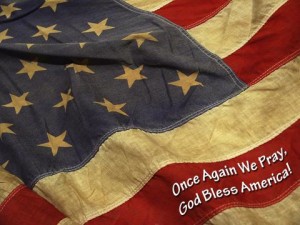EVEN STEVEN…
This week the United States celebrates the 4th of July: Independence Day. “Independence” is another word for liberty or freedom. Most literally, the freedom we remember and celebrate is when the thirteen colonies, which became the United States of America, declared their independence from Great Britain on July 4, 1776. Freedom, however, is much more than political freedom. Freedom is also a Christian virtue. “You were called for freedom,” Saint Paul wrote to the Galatians [5:13a].
What is freedom and what does it mean? For some, though certainly not for Christians, freedom means individualistic license: I can do whatever I want when I want. That kind of “freedom” is a slave to momentary desires and impulses and is extremely dangerous. Aware that this is how some interpret freedom, Saint Paul quickly added to the verse I quoted above: “Do not use this freedom as an opportunity for the flesh” [5:13b].
In a book that Pope Francis said “has done me so much good,” Cardinal Walter Kasper writes of freedom: “Freedom that is conscious of its own dignity will always respect the freedom of others. It will be in solidarity with their freedom, and will stand up for it. Freedom, therefore, is not ‘freedom from’ others, but ‘freedom with and for’ others. Freedom is realized in justice, which gives everyone his or her due. Freedom concretely presupposes that everyone else will respect their own freedom. It presupposes thereby a system of justice that is, at the same time, a regulated system of freedom” [Mercy: The Essence of the Gospel and the Key to Christian Life].
And what is justice? Justice is usually understood to mean giving each what each is due, but that too often sounds like punishment. In fact, courts and judges and prisons and jails are part of what we often call the “criminal justice system,” a system whose purpose is to punish those who break the law. What is due to those who don’t break the law? What is due to the human being as human being? First and foremost, justice requires that each person acknowledge the dignity of the other. What is owed the other on the basis of this dignity are personal respect, personal acceptance, and personal care. Cardinal Kasper says that “one can understand justice as the minimal measure of love and love as the full measure of justice.” Here I quote Saint Paul once again, this time the entire verses of Galatians 5:13–14: “You were called for freedom, brothers and sisters, but do not use this freedom as an opportunity for the flesh; rather, serve one another through love. For the whole law is fulfilled in one statement: ‘You shall love your neighbor as yourself.’”
We rightly celebrate the political freedom we enjoy in this country and wish the same freedom for others. At the same time, we do not equate political freedom with Christian freedom. Let us strive for both: a world that respects people’s rights, gives them a voice in the future of their countries and justice under the law, as well as the freedom that expresses itself in loving service of others, which is the ultimate justice: giving each one what is due them, namely, personal respect, personal acceptance, and personal care.
Happy Fourth of July!
Father Steve

